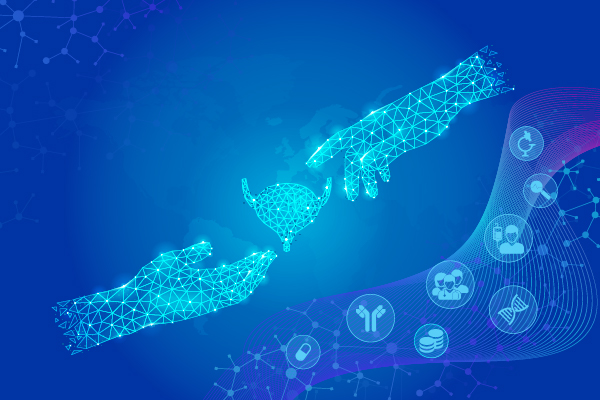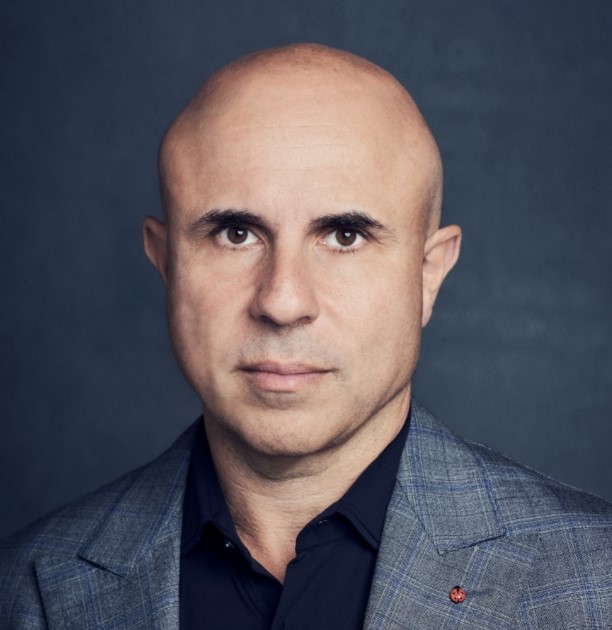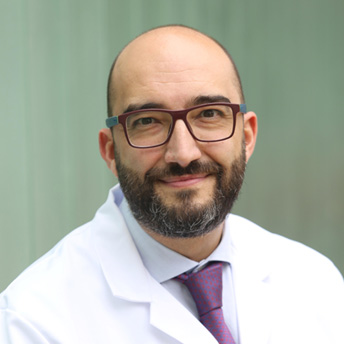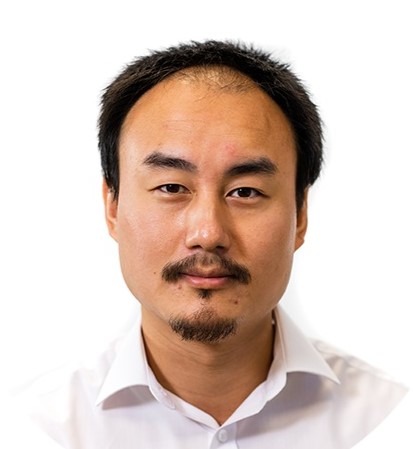
Session 1: Reconsidering the optimization of first-line treatment strategies in locally advanced or metastatic urothelial cancer
Release date: 30-04-2024
Expiration date: 29-04-2025
The therapeutic landscape of unresectable locally advanced or metastatic (LA/m) urothelial cancer (UC) has undergone a significant transformation in recent years with the addition of immune checkpoint inhibitors (ICIs) targeting PD-1/PD-L1 and novel antibody-drug conjugates (ADCs) to the treatment armamentarium. In real-world practice, factors such as drug accessibility, clinical characteristics, adverse events, and patient preferences greatly influence treatment decisions across diverse geographical regions. Therefore, it is crucial to develop an optimal treatment strategy tailored to the individual needs of patients in the first-line (1L) setting. In this educational program on ‘Best Practice Exchange in Clinical Case Scenarios’, experts in the field will discuss the latest evidence supporting the use of these therapies in clinical practice, including patient selection criteria for platinum eligibility and ineligibility, optimal 1L treatment strategies and immunotherapy maintenance approaches, considerations for treatment sequencing, and management of treatment-related adverse events (TRAEs). An improved understanding of the role and application of individual 1L treatment strategies in routine patient care will facilitate optimal management for patients with urothelial cancer.
This English program is available with subtitles in the following languages:

参与专家

Fernando Maluf, MD, PhD | Moderator
Beneficencia Portuguesa
Albert Einstein Hospital
São Paulo, Brazil
Fernando Maluf is the Director of Medical Oncology at Beneficencia Portuguesa and a member of the steering committee of the Medical Oncology Center at Albert Einstein Hospital in São Paulo, Brazil. Dr Maluf is a member of the American Society of Clinical Oncology, and is a founding member of the Brasilian Group of Gynecological Tumors (Grupo Brasileiro de Tumores Ginecológicos). He has authored numerous publications and currently serves as an editor for the Brazilian Oncology Manual. In December 2018, Dr. Maluf received the academic title of Professor Livre Docente, by the Faculty of Medical Sciences of Santa Casa de São Paulo.

Enrique Grande, MD, MSc, PhD
Quirónsalud Madrid
Madrid, Spain
Enrique Grande is the current Director of the Cancer Program at Quirónsalud in Madrid, Spain. He was the Director of the Medical Oncology Program at MD Anderson Cancer Center in Madrid, Spain, and also served as an Adjunct Professor at The Univercity of Texas MD Anderson Cancer Center in Houston, USA. Dr. Grande focuses on research into genitourinary tumors and is actively involved in the development of the Translational Research and Early Drug Development Unit. Dr. Grande earned his PhD for a pharmacokinetic and pharmacodynamic study of tyrosine kinase inhibitors in liver metabolism, and he holds a master’s degree in the molecular biology of cancer from the Spanish National Cancer Research Center (CNIO). A published author of more than 200 manuscripts in peer-reviewed journals, Dr. Grande is also the founder of the Spanish Group for Research on Orphan and Uncommon Tumors (GETHI). Dr. Grande is an editor of several international journals and has edited a range of books related to oncology. He has participated in the most recent clinical trials in the field of genitourinary and neuroendocrine tumors that led to the approval of the new drugs now available.

Joachim Chan, BSc, MBBS, MRCP, FRCR, MD
Clatterbridge Cancer Centre
NHS Foundation Trust
Liverpool, UK
Joachim Chan currently serves as a Clinical Oncology Consultant at Clatterbridge Cancer Centre NHS Foundation Trust in Liverpool, UK. He specializes in upper GI cancer, bladder cancer, and prostate cancer.
Dr. Chan studied medicine at Imperial College of Science, Technology and Medicine and graduated with distinction. He completed his postgraduate medical training in London and specialized in Clinical Oncology at Clatterbridge Cancer Centre. Dr. Chan was appointed as a Clinical Research Fellow at The Clatterbridge Cancer Centre and received an MD from the University of Liverpool for his doctoral thesis on hypofractionated dose painting radiotherapy for prostate adenocarcinoma.
The proposed initiative is specifically designed for medical oncologists, urologists, and other healthcare professionals involved or interested in the management of urothelial cancer.
Upon completion of this educational activity, participants should be able to:
- Establish confidence and expertise in selecting the optimal 1L treatment strategies for unresectable LA/m UC
- Transfer knowledge into practice and utilize maintenance immunotherapy in the most optimum way in 1L setting to extend survival of patients with unresectable LA/m UC
- Identify how to sequence available options for second-line (2L) and salvage treatments of unresectable LA/m UC
- Develop strategies for the prevention and management of adverse events (AE) associated with the range of treatments used in unresectable LA/m UC
This educational activity is provided by ACE Oncology.
This educational activity is supported by an independent grant from the Healthcare business of Merck KGaA, Darmstadt, Germany.
The Faculty of Pharmaceutical Medicine has approved this event for continuing professional development (CPD) and allocated it 2 CPD credits.
This activity provides content that is evidence-based, balanced, and free of commercial bias, with a primary objective to improve the competence and performance of learners in order to improve patient care.
The faculty reported the following financial relationships or relationships to products or devices they or their spouses/life partners have with commercial interest related to the content of this activity:
Fernando Malof has served as an advisor or consultant for Astra Zeneca, Bayer, GSK, Johnson & Johnson and MSD. He has also served as a speaker or a member of a speakers bureau for Astra Zeneca, Bayer, GSK, Johnson & Johnson and MSD. In addition, he has received grants for clinical research from Astra Zeneca, Bayer, GSK, Johnson & Johnson and MSD. He has agreed to disclose any unlabeled/unapproved uses of drugs or products referenced in his presentation.
Enrique Grande has received honoraria for speaker engagements, advisory roles or funding for continuing medical education from Advanced Accelerator Applications, AMGEN, Angelini, Astellas, Astra Zeneca, Bayer, Blueprint, Bristol Myers Squibb, Caris Life Sciences, Celgene, Clovis-Oncology, Dr. Reddy’s, Eisai, Esteve, Eusa Pharma, Genetracer, GSK, Guardant Health, HRAPharma, IPSEN, ITM-Radiopharma, Janssen, Lexicon, Lilly, Merck KGaA, MSD, Nanostring Technologies, Natera, Novartis, ONCODNA (Biosequence), Palex, Pharmamar, Pierre Fabre, Pfizer, Raffo, Roche, Sanofi-Genzyme, Servier, Taiho, Tecnofarma, Thermo Fisher Scientific and Zodiac. He has also received grants for clinical research from Astellas, Astra Zeneca, IPSEN, Lexicon, Merck KGaA, MTEM/Threshold/Tersera, Nanostring Technologies, Pfizer and Roche. He has agreed to disclose any unlabeled/unapproved uses of drugs or products referenced in his presentation.
Joachim Chan has served as an advisor or consultant for Merck. He has agreed to disclose any unlabeled/unapproved uses of drugs or products referenced in his presentation.
The employees of ACE Oncology have disclosed no relevant financial relationships.
ACE Oncology requires instructors, planners, managers, and other individuals who are in a position to control the content of this activity to disclose any real or apparent conflict of interest (COI) they may have as related to the content of this activity. All identified COIs are thoroughly vetted and resolved according to ACE Oncology’s policy. ACE Oncology is committed to providing its learners with high-quality activities and related materials that promote improvements or quality in healthcare and not a specific proprietary business interest of a commercial entity.
